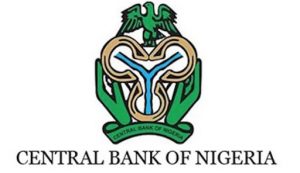The Central Bank of Nigeria (CBN) has taken steps to protect the financial system from cases of money laundering through Other Financial Institutions (OFIS) such Microfinance Banks (MfBs), Finance Companies, and Discount Houses.
The apex bank has, therefore, developed guidance note on anti-money laundering/combating the financing of terrorism (AML/CFT) for other financial institutions (OFIs).
CBN Director, Financial Policy and Regulation Department, Chibuzo Efobi, said the Guidance Note would assist the sub-sector in the identification, assessment, as well as mitigation of money laundering and terrorist financing (ML/TF) risks.
He said the level of sophistication of the internal controls should be commensurate with the size, structure, risks and complexity of the financial institution.

“The internal controls address risks and compliance requirements unique to a particular line of business or department and are part of a comprehensive AML/CFT compliance programme,” he stated.
According to Efobi, the OFIs are required to develop an AML/CFT programme, which at the minimum should contain the Board and senior management oversight, risk management, policies and procedures, monitoring and suspicious transaction report, internal control, compliance function and training.
He added that the OFIS Board of Directors would establish an AML/CFT programme in tandem with the AML/CFT legislations and regulations, okay AML/CFT policies and procedures, assign a member to handle AML/CFT issues or establish a committee, do so and report to it.
Also, the OFIS Board of Directors is expected to issue policies on ML/TF risks and formulate and communicate a code of conduct/ethics that include AML/CFT issues. Moreover, the OFIS Senior Management is responsible and accountable for the implementation of the AML/CFT programme.
They should ensure that the programme is adequate to mitigate ML/TF risks and complies with the extant AML/CFT laws, regulations, guidelines and relevant circulars.
He said the determination of criminals and criminal organisations to use other financial institutions to launder funds and finance terrorism poses threats to the financial system globally.
According to him, the threat continues to be a source of concern to the apex bank. “Over the years, there have been extensive efforts in many countries to come up with appropriate measures to combat money laundering and financing of terrorism.
“One of the core mandates of the CBN is to promote the safety and soundness of the financial system and, by extension, formulating appropriate policies and procedures designed to mitigate AML/CFT risks to promote financial system stability,” he said.
He said the Guidance Note would identify risk management procedures that would lessen the susceptibility of OFIs as a fertile ground for money laundering, terrorist and proliferation financing.
These risks may arise from customers, product and services, business practices or delivery methods and jurisdictions or geographical presence.
The CBN said in carrying out its supervision, it observed that OFIs have challenges in the implementation of effective risk-based approach to AML/CFT programme that meets the standard of regulation.
The application of the Guidance Note is expected to assist the institutions take measures to review, monitor and mitigate the risks. OFIs could use more stringent tools to identify and assess ML/TF risks in their institutions. However, irrespective of the method adopted, the risk assessment should be updated regularly, the CBN said.


